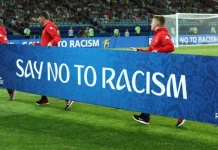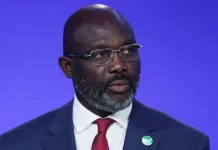FIFA’s abrupt decision to eliminate anti-discrimination and anti-racism messaging from the ongoing 2025 Club World Cup in the United States marks a dramatic shift from its recent stance. Previously visible at the 2022 Men’s and 2023 Women’s World Cups, these banners, social media posts, and stadium visuals have all but vanished. Although FIFA briefly reinstated the content on June 18 for the International Day for Countering Hate Speech, no further messaging has appeared—and no explanation has been offered.
The Real-World Implications of Withholding Messaging
A Conspicuous Omission
Supported by new changes in the Disciplinary Code, FIFA asserts its resolution of the zero-tolerance approach to racism. They point to enforcement tools like match suspensions and social media monitoring. Yet the void on in-stadium displays during the Club World Cup undermines these claims, raising suspicion about the sincerity of FIFA’s position.
Fan Behavior and Enforcement Gaps
During the July 2 match in Atlanta, homophobic chants were heard. While FIFA warned about potential suspension, no further action followed. The critics believe that without anti-discrimination reminders, FIFA had a great chance to strengthen its position. In the absence of such visibility, restraint is hard to impose on it and discriminatory actions might not be corrected.
Why Anti-Discrimination Messaging Matters
The Power of Visibility
Public campaigns serve as both deterrent and symbol. They educate fans and athletes and assert solidarity. At previous World Cups, these updates signaled global unity against hatred. Minky Worden, Human Rights Watch’s global initiatives director, pointed out that removing these campaigns “is an inexplicable and inexcusable step backward.”
Preparing for the 2026 World Cup
The Dignity 2026 Coalition and other advocates caution that this withdrawal foreshadows troubling cracks ahead of the US–Canada–Mexico 2026 World Cup. FIFA’s inaction now could set an alarming precedent for its largest tournament yet.
Contradictions in FIFA’s Policy Action
Discrepancy Between Words and Deeds
Although there are encouraging statements such as the one made by the President Infantino who came out to give a “Red Card to Racism” at the UN assembly in May 2025, what FIFA is doing on the ground does not translate. It is still wailing the anti-discrimination song through its official channels though but the Club World Cup hosting is another matter–it is an ominous sign that messages only matter when they are convenient.
Pushback from Rights Groups
Bailey Brown of the Independent Supporters Council lamented that FIFA’s message withdrawal “risks normalizing discrimination and undermining progress.” Andrea Florence of Sport & Rights echoed that absence “sends a chilling message that discrimination will be tolerated.” Their alarm reflects the broader concern: inaction speaks volumes.
The Broader Impact on Sport and Society
The Reality of Persistent Abuse
There is so much discrimination in football. The studies indicate that more than 50 percent of the players who participated in the EURO 2020 and AFCON 2022 experienced online abuse. One in every five players registered attacks during the 2023 Women’s world cup. On their part, the absence of visible messages renders the environment more dangerous, and the burden undeservedly transfers to athletes and grassroots supporters who have to protect themselves against prejudice.
A Global Responsibility
The sphere of influence of FIFA stretches between continents where it penetrates youth leagues, federal associations, as well as communities of fans. Its new position jeopardises years of anti racism work. As the supreme authority in football, FIFA’s decisions have ripple effects far beyond elite tournaments.
A Voice Warning FIFA of the Stakes
Minky Worden emphasized during a recent televised interview that FIFA’s silence poses serious dangers for equality in sport and reflects poorly on its global leadership. Her message underscores the urgency and the scrutiny that FIFA now faces.
In a terrible sign for #WorldCup2026, @FIFAcom canceled its own anti-discrimination+anti-racism campaign at the US #ClubWorldCup, putting players, fans+children at risk.
New statement by @dignity2026, a coalition of top rights groups:https://t.co/PSpOPcKOfC@HRW @Sport_Rights pic.twitter.com/UyU11LNoax
— Minky Worden (@MinkysHighjinks) July 4, 2025
Accountability and Re-engagement
FIFA faces mounting demands to explain its silence. Fans, players, and human rights groups are urging reinstatement of anti-discrimination campaigns. The question looms: was this removal a misguided pause or strategic retreat? The response—or silence—will shape perceptions as FIFA gears up for its 2026 showcase.
As the world watches whether FIFA reopens its megaphone against racism and discrimination, the real question is: can silence ever be neutral in the fight for equality, or will it become a dangerous complicity under the guise of tournament logistics?













